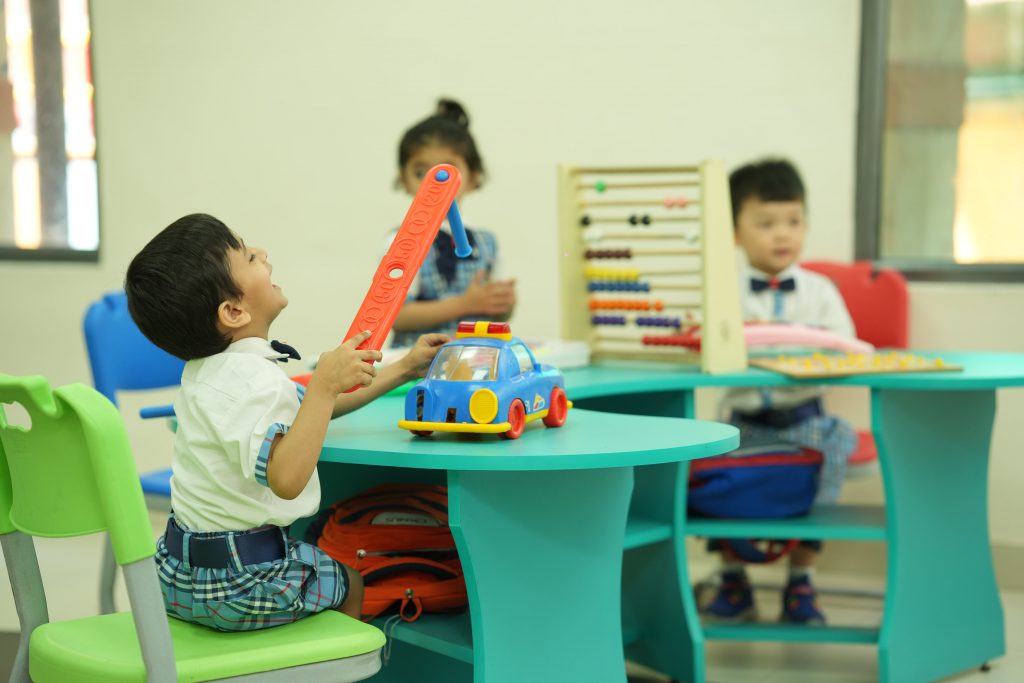In today’s rapidly changing world, problem-solving skills are essential for success, and fostering these abilities early in life can have a profound impact on a child’s development. At Seedling Modern High School, we believe that encouraging young children to think critically and approach challenges creatively is key to preparing them for the complexities of life.

Why Problem-Solving Skills Matter
Problem-solving isn’t just about finding solutions to immediate challenges; it cultivates adaptability, creativity, and resilience. Children who learn how to solve problems from a young age develop confidence in their abilities, think outside the box, and are more likely to take on challenges without fear of failure. These skills also enhance cognitive abilities, laying a foundation for strong academic performance and social competence.
Strategies for Developing Problem-Solving Skills
At Seedling Modern High School, we integrate various methods to encourage problem-solving in our students. Here are a few strategies we use:
- Play-Based Learning
Play is a natural and engaging way for children to develop problem-solving skills. Whether it’s building with blocks, solving puzzles, or engaging in role-play, children encounter challenges that require them to think critically and find creative solutions. Through play, they learn to navigate problems independently and collaboratively. - Encouraging Curiosity
We foster a culture of curiosity, encouraging students to ask questions and explore different solutions. By posing open-ended questions and offering real-world problems to solve in classroom teaching at Seedling Modern High School, we allow students to develop their thinking skills. The more curious children are, the more they are inclined to investigate, experiment, and discover answers on their own. - Collaborative Learning
Working together in groups on tasks or projects helps students recognize that multiple solutions can exist for a single problem. Collaboration also teaches children to listen to others, weigh different perspectives, and compromise when necessary—important life skills that support problem-solving. - Creating a Safe Environment for Mistakes
Problem-solving involves trial and error, and at Seedling Modern High School, we create a safe environment where students understand that mistakes are part of learning. By embracing failure as an opportunity for growth, children become more resilient and willing to try again. - STEM Activities
Incorporating Science, Technology, Engineering, and Mathematics (STEM) activities allows children to engage in hands-on problem-solving. Whether it’s a simple coding exercise, a science experiment, or a math puzzle, students learn to break down problems into manageable parts, think systematically, and apply logic. - Mindfulness and Reflection
Encouraging children to reflect on their thought processes is essential to developing problem-solving skills. Mindfulness activities, like journaling or discussing how they approached a challenge, help students understand their own strategies and identify areas for improvement.
The Long-Term Benefits of Early Problem-Solving Skills
Children who develop problem-solving skills early on are better equipped to face future challenges, both academically and in life. These skills boost self-esteem and empower students to become independent thinkers and innovators. As they grow, they are more likely to take initiative, approach problems with optimism, and thrive in both collaborative and competitive environments.
At Seedling Modern High School, we are committed to nurturing these essential skills in our young learners, helping them develop into confident individuals ready to tackle the challenges of the future. By fostering a culture of problem-solving, we are preparing our students not just for academic success, but for life.
